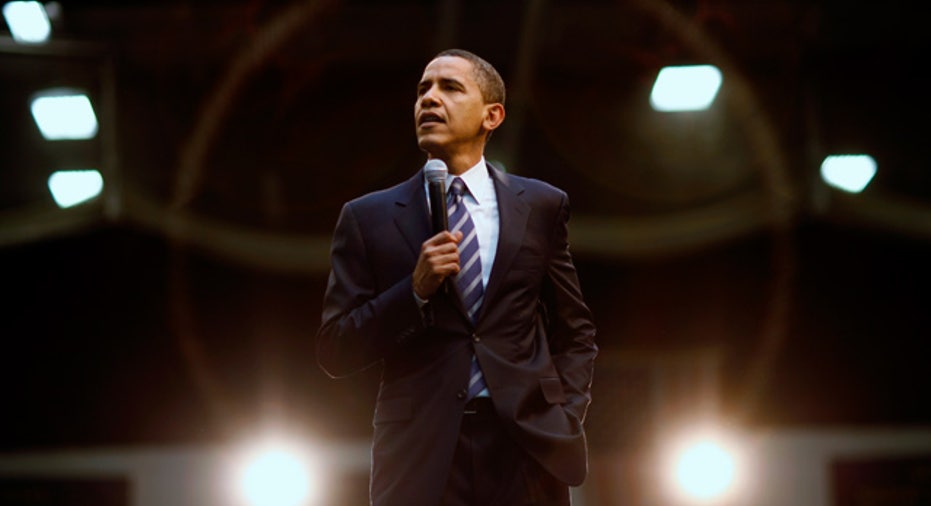Obama: No Quick Fix to Bring Down Gas Prices

President Barack Obama said there are no quick fixes to bring down rising gasoline prices and urged caution about being too quick to tap U.S. emergency oil reserves amid uncertainty in the Middle East.
"There aren't going to be a lot of great short-term solutions to this problem," Obama said in an ABC interview aired Friday.
He warned that emergency reserves were designed to be used only when the oil shuts off from major producers, causing major supply problems.
Violence in Libya amid growing uncertainty in the Middle East and a weak dollar pushed U.S. oil prices early this week to $113 a barrel -- the highest level since September, 2008.
A month ago, when the oil price was about $101 a barrel, Obama said a plan to tap the reserve was "teed up" if the supply situation worsened. He vowed to move quickly to address rising gasoline prices if they moved so high they hurt the economy.
But this week he said the reserve is mainly for supply emergencies.
"It wasn't supposed to be there to monitor prices," he said in the interview.
Energy analysts said U.S. petroleum supplies are plentiful despite high prices. Pipelines are so full with oil from new sources that have developed recently in Canada and North Dakota shippers are sending crude to Gulf Coast refiners by rail.
"With the supplies that we have, like record inventories at Cushing, Oklahoma, there's plenty of oil in the (U.S.) market," said Daniel Flynn, an analyst at PFGBest Research in Chicago.
In addition there have been no requests for the emergency reserve oil from U.S. refiners, as there were in supply emergencies following hurricanes, the Energy Department has said.
The military action in Libya, an Organization of the Petroleum Exporting Countries member, by the United States and its allies has increased pressure on Libyan leader Muammar Gaddafi.
But some oil is still being exported from Libya and tapping the U.S. reserve now could lead to problems later, Obama said.
'VERY CAREFUL'
"The reserves, I think, are something that we've got to be very careful about," Obama said. "And what we don't want to do is catch ourselves in a situation, particularly when things are uncertain in the Middle East, where we're using it now and it turns out we need more later."
High oil prices also help Obama's energy policy of trying to speed the move toward alternative fuels like ethanol and electrification of cars -- as long as oil prices are not so high that they wreck the economy.
Earlier this month White House aides said they were concerned that if U.S. average gasoline prices surpassed $4 a gallon and if U.S. oil passed $125 a barrel the economic damage to consumers could dominate next year's presidential campaign and hurt Obama's message of economic recovery.
The Energy Department says the average U.S. household will pay $825 more this year for gasoline this year than last year.
But prices are still well under those the levels aides are concerned about. On Friday, gasoline averaged nearly $3.82 a gallon and U.S. oil traded above $109 a barrel, down from the high hit on Monday.
Obama said tax cuts enacted in 2010 have helped buffer the strain on American consumers posed by rising gasoline prices.
"So the total amount of tax cuts that we passed to boost the economy this year will probably be higher than the additional gas costs," Obama said.
(Additional reporting by David Morgan, Tom Doggett, Tim Reid in Washington and Joshua Schneyer in New York; Graphic by Van Tsui; Editing by Bill Trott and Deborah Charles)



















